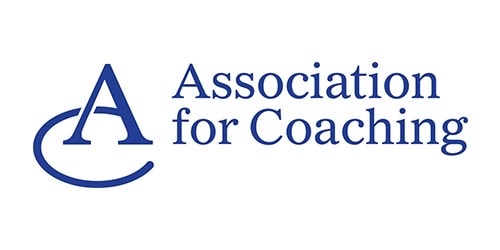The Association for Coaching (AC) to launch a team coaching competency model this Spring
A team coaching competency model has been created by Dr. Declan Woods, teamGenie® CEO, for the Association for Coaching (AC), following extensive interviews with team coaches across the world. These competencies have been created to set out the knowledge, skills, and behaviours of effective team coach practitioners and to raise standards of coaching practice for teams.
What does great team coaching look like?
Are you a team leader or HR professional looking for a team coach but confused by what to look for?
Perhaps you are you an organisation trying to make sense of this new thing called team coaching?
Or you might be a team wondering what it will be like to experience team coaching?
This article and the accompanying team coaching competency model will help answer these questions.
Team coaching competency model
The Association for Coaching (AC), the second largest independent professional coaching body globally, decided a team coaching competency model was required to support their accreditation process. As their Global Head of Team Coaching Standards and Accreditation, I was tasked with creating it. Following interviews with team coaches across the world these competencies were drafted to set out the standards of knowledge, skills, and behaviours of effective team coaching practitioners.
Although designed to help guide team coaches in the standards to be demonstrated during the accreditation process, these competencies can also be used to educate audiences about what constitutes effective team coaching practice. Therefore, internal team practitioners and organisational buyers of team coaching services will find them useful.
Whether you are an independent team coach or an internal one, this article will also help you to take responsibility for planning and progressing your professional coaching development.
Defining terms
The team coaching competency model starts by defining key terms including what is a team:
“Collaboration between a recognised group of people drawing upon individual capabilities and strengths who are committed to working together inter-dependently to achieve a common purpose and collective performance and learning goals.”
It then outlines what team coaching is:
“The application of coaching skills while working with a whole, intact team over time to improve inter-dependent members’ abilities to work together collaboratively to achieve the team’s collective purpose, potential and performance.”
The debate continues about whether to describe standards of practice as competencies or capabilities etc. It is largely academic. As the term “competencies” is already widely used and understood, the AC continued using this word. Competencies have their limits, especially is used in a mechanistic way and inflexibly. The best practitioners use them fluidly and dynamically to respond to team’s changing needs. The same is true of team coaching.
Are you fit to practice?
Let’s try to bring the team coaching competencies to life. The numbers relate to the competency indicator.
- Relationships: Team coaching is a relational process: developing a relationship between coach and team leader, individual team members, and the whole team. The client is all these parties [2.1]. Understanding [10.3] and attending to all their needs is key [3.2].
- Systemic: Teams in organisations rarely exist in isolation. They work alongside other teams inside and outside of the organisation [2.8]. Understanding this complexity and the inter-play between them is important [9.1].
- Ethics: Behaving ethically is vital when coaching teams [1.2]. Practically, this means being able to understand what a team needs and align this with an intervention to meet them [1.6]. This means appreciating and explaining how team coaching differs from other work with teams (e.g., facilitation or team building) [1.5] and providing the best solution. It is acting in the best interest of the team [1.2]. That is different from acquiescing to their demands. It is doing the right thing for the team, tough as that might be at times.
- Making it safe: Teams can be challenging places to work. Sometimes they are not safe. Making it psychologically safe [3.6, 5.6] for members helps create the conditions for learning, taking risks, trying new things and ways of working, and is a key component of what makes a team effective and higher performing. Ask Google. https://rework.withgoogle.com/print/guides/5721312655835136/
- Team dynamics: Dynamics are always present in teams. Understanding and being able to work with them and help teams resolve any conflicts is a core part of the work. [7.8]. Coaches able to use a range of approaches flexibly will be best placed to do this. [7.1]
- Self-care: Teams can be challenging for coaches too. Practitioners will need to be able to work with the team’s and their own emotional reactions and manage their state. [4.4.] while looking after and resourcing themselves. [11.4-5]. Supervision is invaluable. [11.3]
- Creating new awareness: The core coaching skills of listening, questioning, and asking questions apply to coaching teams too [5.3]. Use these skills to provide insights and improve understanding [5.6]. Using psychometric and team (effectiveness) tools (e.g., teamSalient® – see teamsalient.com) can help raise awareness too. [6.7]
- Know-how: Knowledge is key. For team coaches that is knowing about teams, what makes them effective, how they change and develop, team and inter-personal dynamics and dysfunction, systems theories, and the vital role team leaders play.
- Outcome focus [8.1]: Coaching is a means to an end and should help teams work towards this whether that be focussing on team purpose, potential or performance. The challenge for the coach is leaving responsibility for performance with the team while following through on their actions. [8.7]
Irrespective of whether you are a team practitioner or organisational sponsor of team coaching, I hope you found this article useful and that it has gone some way to demystifying team coaching and raising standards of practice.
Declan.
Dr. Declan Woods
CEO, teamGenie®




